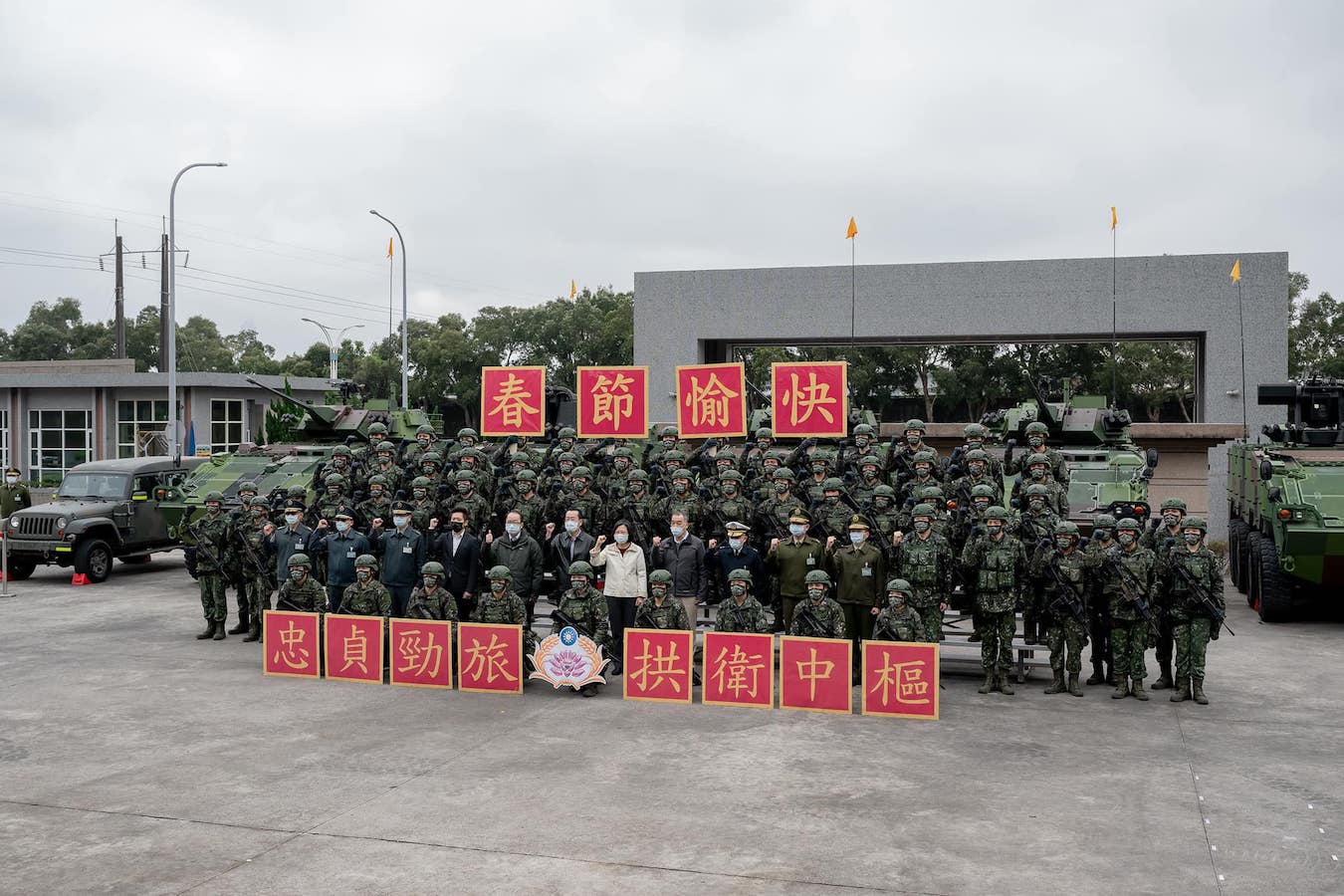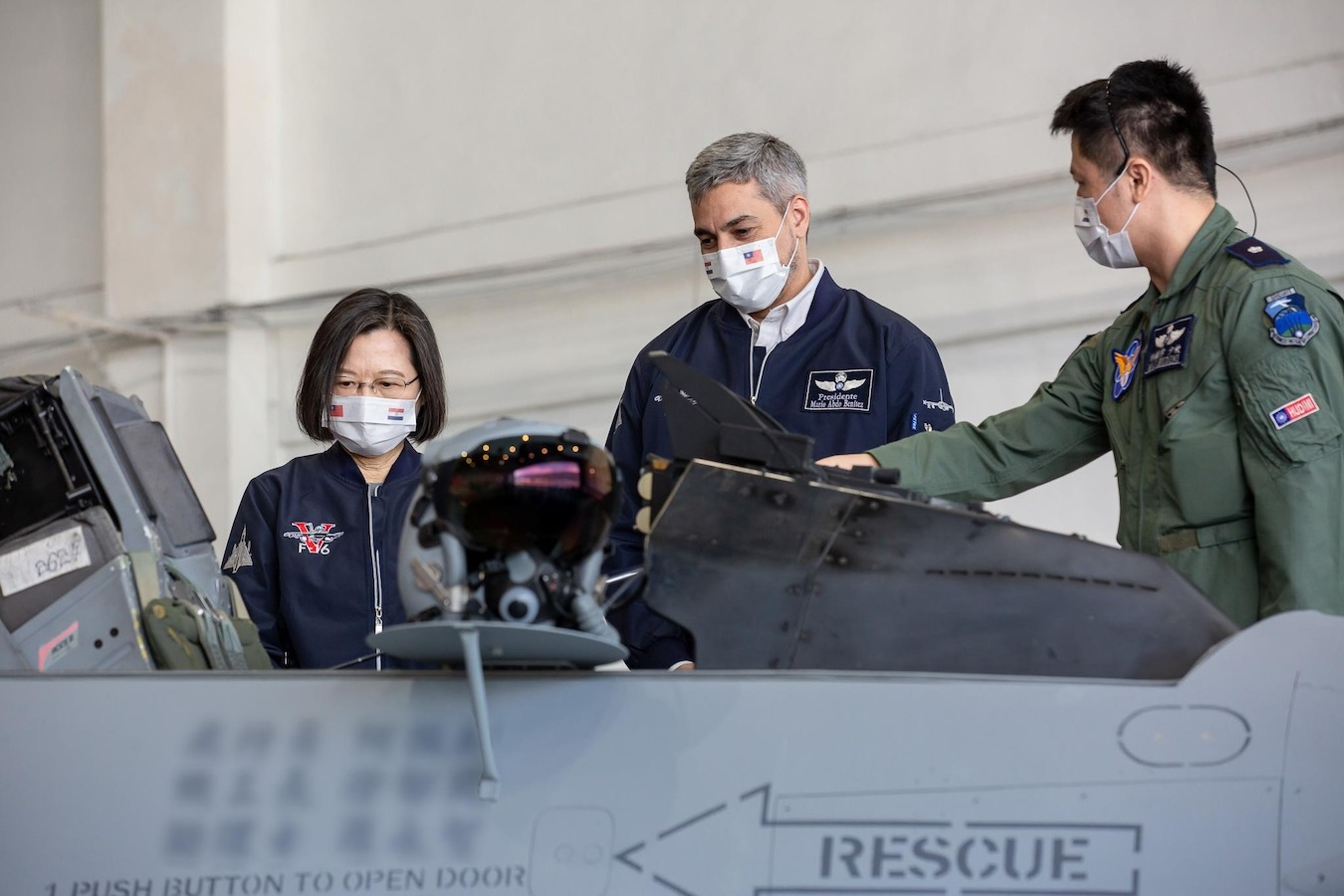by Brian Hioe
語言:
English
Photo Credit: Tsai Ing-wen/Facebook
CONTROVERSY OVER THE General Mobilization Act has led the Ministry of Defense to drop planned amendments, particularly following a wave of criticism from the pan-Blue camp. The Ministry of Defense now states that it will revise the act with further input, before it takes any action.
The General Mobilization Act specified measures that would be taken in wartime to coordinate Taiwan’s defense effort. But the dropping of plans to change the General Mobilization Act over questions over the potential effect on freedoms of speech to what occurred with the Digital Services Intermediary Act, with plans to change the act to tackle online disinformation and deepfakes. Backlash against the planned changes, similarly, led the National Communications Commission to drop plans to change the Digital Services Intermediary Act.
In particular, the General Mobilization Act came under fire from the KMT, over the potential controls on information that would take place during wartime. That is, during wartime conditions, the General Mobilization Act would allow for the government to enforce controls on information networks, whether this ranges from newspapers to television, radio, and online media.
 Photo credit: Tsai Ing-wen/Facebook
Photo credit: Tsai Ing-wen/Facebook
Likewise, provisions in the General Mobilization Act state that student groups would assist in wartime with the production of military supplies. This was framed by the KMT as leading to the use of “child soldiers” in Taiwan. Pan-Blue outlets such as the United Daily News fanned fears about the wartime mobilization of minors with reports on the Ministry of Education collecting information on high schoolers over 16 in the event of potential mobilization, though the Ministry of Education stated that these lists were normally collected and this was not in preparation for any new measures.
Such criticisms from the pan-Blue camp are probably aimed at framing the DPP as warmongering and unnecessarily provocative of China, while there would be no such need to consider these measures if the KMT were in power.
The KMT has also increasingly tried to frame the DPP as taking actions against the media, through efforts of the Tsai administration to crack down on media outlets that act as a fifth column for China in spreading Chinese disinformation. Such actions have been relatively mild, such as declining to renew CtiTV’s broadcast license, but allowing it to continue streaming online. CtiTV and other outlets owned by the Want Want Group, such as the China Times, have been reported on by the Financial Times and Apple Daily as directly accepting funding and say in their editorial direction from China’s Taiwan Affairs Office.
Yet KMT critiques of the General Mobilization Act on such grounds are ironic, in light of the fact that during the authoritarian period, the KMT maintained extensive restrictions on media and freedoms of expression in the name of combating Communist influence in society. The DPP is more likely to have its eye on trying to limit Chinese disinformation attempting to sow social discord or diminish morale.
To this extent, the claim that there would be “child soldiers” through the General Mobilization Act proves reminiscent of previous claims by the KMT that purchasing Volcano landmines from the US would contravene international law and lead to Taiwan becoming plagued by landmines. That the Ministry of National Defense specified that only anti-tank, rather than anti-personnel, landmines would be purchased, they would be visible, and landmines would only be placed on beaches shortly before an invasion, did not prevent such criticisms. It would not be unlikely that this narrative itself was promoted by Chinese disinformation efforts.
 Photo credit: Tsai Ing-wen/Facebook
Photo credit: Tsai Ing-wen/Facebook
The attempt with such criticisms is to frame the DPP as violating internationally acknowledged standards of human rights with violations–never mind that this is precisely what the KMT did during the authoritarian period when the party’s goal was still to retake the Chinese mainland, and Taiwan’s utility was only as a staging ground for this invasion. Such criticisms also prove hollow when Taiwan’s defense against a Chinese invasion would likely be a total war effort.
As the Tsai administration backing off from the General Mobilization Act goes to show, the DPP is responsive to social criticisms of the act. This in itself shows that the DPP is unlikely to violate basic freedoms in wartime. For one, as the historically pro-independence party in Taiwanese politics and a party that originated from Taiwan’s democracy movement, the DPP has a high priority on distinguishing Taiwan from China, in terms of upholding Taiwan’s human rights record.
Quite obviously, there is a danger that wartime mobilization efforts may impede freedom of speech. Yet the KMT has instrumentally sought to use purported concerns over human rights to impede efforts to take action against Chinese disinformation, or potential fifth-column efforts in Taiwan. In this sense, this complicates the space to hold nuanced views.

